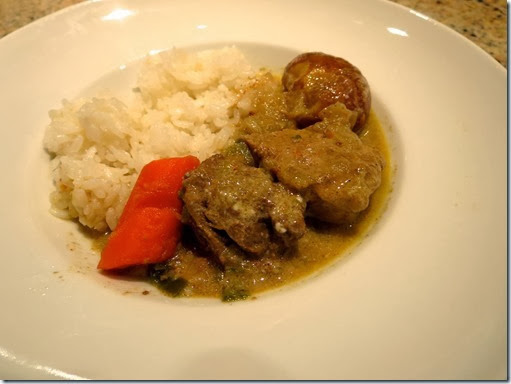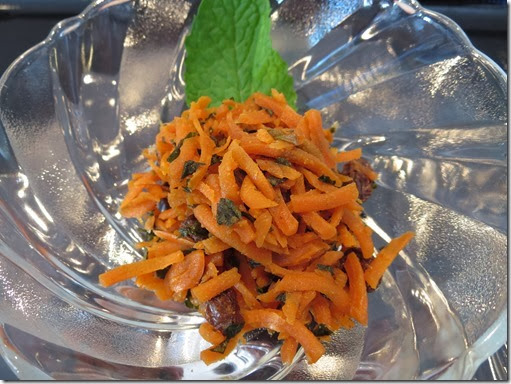The cherry blossoms this year will not last long. This is the second day of hanami.
It was a nice sunny warm day requiring a "fan" and umbrella.
My wife wanted red wine rather than sake to start. So we started with my wife’s
miso-flavored carrot and cashew nut spread on crackers. I asked my wife to fill in the recipe.
The amounts are basically arbitrary:
Four carrots peeled, cut into pennies and microwaved until soft. About 3/4 cup of salted cashew nuts gently toasted to golden brown in the toaster oven (even though they came toasted in the jar the additional toasting really brings out the flavor). I pureed the carrots and cashews in the food processor using several tablespoons of chicken broth until the mixture reached a spreadable texture. We then stirred in miso and soy sauce to taste. This mixture was particularly good the second day when the flavors had a chance to meld. The carrots added a sweetness and the cashews their usual nuttiness. The miso and soy sauce added an additional dimension that was pleasant but indefinable. This tasted really good with sesame crackers.

We started with a glass of
Havens Black and Blue 2011, Mt. Veeder, Napa Valley which is a cabernet sauvignon and syrah mix like the ones from Australia. This is not bad as an everyday wine.
Although I was planning a line up of dishes for sake, I had to make some changes to accommodate the red wine.
For the first dish, I had to use up the leftover portion of frozen yellow fin tuna block I thawed yesterday. I was going to make “
namerou” なめろう initially, but since we started with red wine, I decided to make
tuna “carpacccio”. I make carpaccio without any particular recipe and on a whim so that every time I make it, it is slightly different.
I started out drawing lines on the plate using a good fruity extra virgin olive oil (EVOO) and syrupy aged balsamic vinegar. This time I happened to have smoked sea salt (which has a wonderful smoky aroma). I ground the salt scattering it on the bottom of the plate. I then layered paper-thin slices of sweet onion (like
Vidalia but since it was not from vidalia was labeled generic “sweet onion”) using a Japanese mandolin "Benriner".
I then put on a layer of thinly sliced tuna. I added more thinly sliced sweet onion, garnished with thin slices of American mini-cucumber. I then again dribbled zig-zag lines of the EVOO and balsamic vinegar. I added fresh grinds of black pepper and the smoked sea salt on the top.
This
carpaccio was very good. The balsamic vinegar was sweet and not too acidic and did not compete with the red wine. The coarsely ground smoked sea salt gave a burst of saltiness with a smoky note which added a lot to this dish. The onion was very mild.
Now for the second dish for red wine. I had a left over bamboo shoot “wakatake-ni” 若竹煮 in the broth I made yesterday. Since a repeat of yesterday’s dish would not do especially since we were having a red wine, I came up with this Italian stir fry of bamboo shoot, asparagus and tomato.
Bamboo shoot, asparagus and tomato stir fry Italian-style:
Bamboo shoot: I just removed the bamboo shoot I made the previous day from the pan and blotted off the broth (which is soy sauce, mirin and Japanese dashi flavor) and cut them into smaller pieces.
Asparagus: These were rather thin pencil aspara-gi (guses). I blanched these the previous day thinking I would make sesame dressing for it. I just cut them into 1 inch lengths.
Tomato:I skinned and cut it into small wedges.
I first put olive oil in a frying pan on low heat with flakes of dried red pepper, I also added crushed whole garlic and slowly cooked in the oil for 5 minutes and removed the garlic (I wanted some subtle garlic flavor but not too much for this dish). I then added the bamboo shoot, asparagus and tomato and stir fried them for a few minutes then seasoned with salt and pepper. I served this with freshly grated
Parmigiano Reggiano cheese on the top.
My wife was impressed with this dish especially that I made an Italian-style dish from bamboo shoots. The bamboo shoot was still crunchy with a nice slow heat from the red pepper flakes. With green asparagus, this dish represented spring. This went very well with the red wine we were drinking.
At this point we are getting filled up. We sipped more wine (we opened
Heavens Cabernet sauvignon 2010, which was better – a classic Napa Cab wine profile). We enjoyed the cherry blossoms and the rest of the warm evening. A beautiful full moon (paschal moon; harbinger of Easter) rose in the clear sky making the cherry blossoms glow in the soft moon light. Unfortunately this will probably be the end of this year’s hanami. But what a fitting ending!





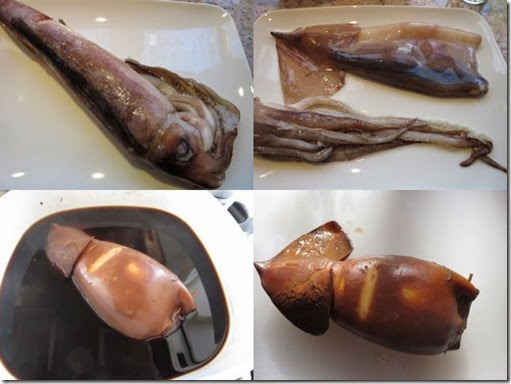









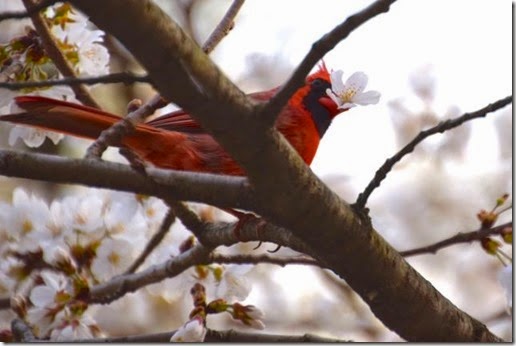
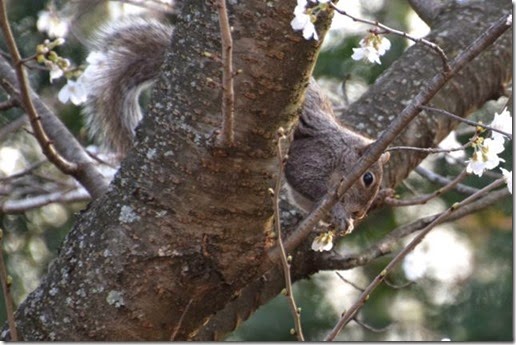
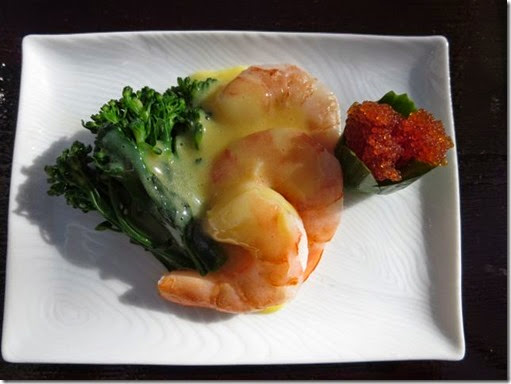
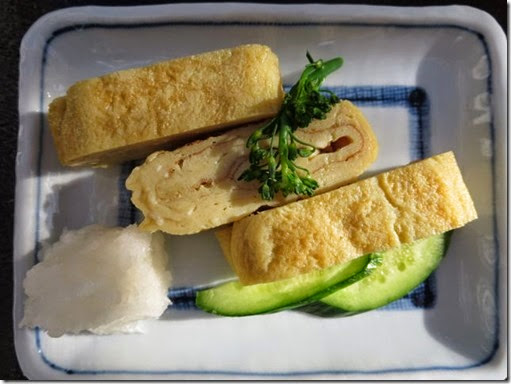
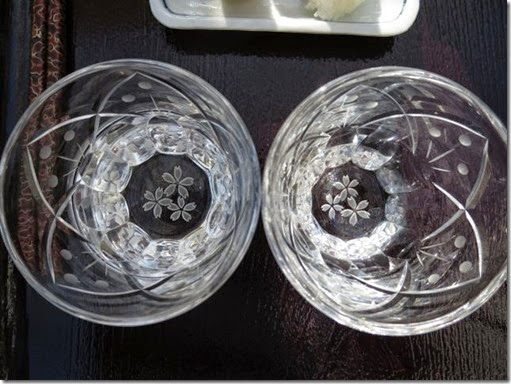

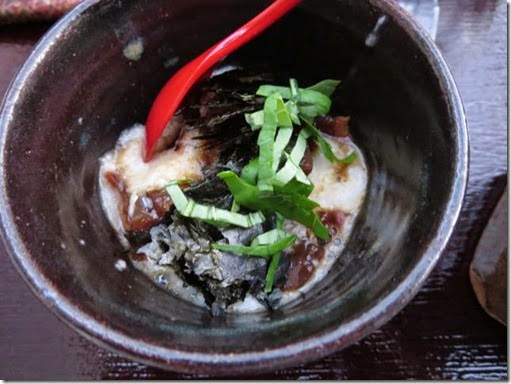













 * I did not take a picture of the "chicken salad". I just used breast meat from a leftover Weber hot smoked chicken which I shredded in small strands by hand and dressed with mayonnaise, Dijon mustard, lemon juice with finely chopped celery.
* I did not take a picture of the "chicken salad". I just used breast meat from a leftover Weber hot smoked chicken which I shredded in small strands by hand and dressed with mayonnaise, Dijon mustard, lemon juice with finely chopped celery.